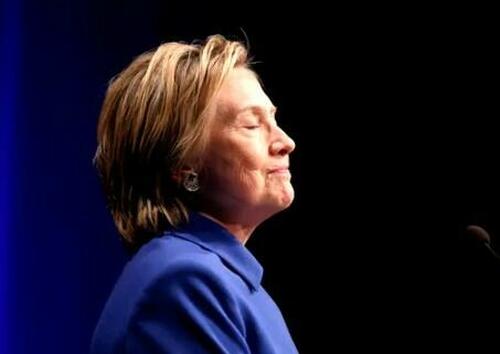If you're wondering where the term "limousine liberal" comes from, it might have something to do with the fact that Democratic policy - despite a sustained PR campaign to make it look as though it benefits the poor - actually benefits the rich.
That was the takeaway from Reason this past week, who wrote about how Democrats, despite beefing up the IRS and posturing that they want all Americans to "pay their fair share", are actually enacting legislation that eases the tax burdens of their high income voters.
As the report notes, the 2017 Tax Cuts and Jobs Act instituted a ceiling of $10,000 on the State and Local Tax (SALT) deductions that can be taken from federal taxable income. This limitation largely impacted affluent individuals residing in states with hefty tax burdens, many of which are bastions of Democratic support such as New York and California.
It's a tax increase on the wealthy, something Democrats typically champion. However, by advocating for the repeal of the SALT cap, they're now fighting to reinstate tax benefits for the affluent. When wealthy residents in California and the Northeast felt the squeeze, Democrats suddenly became tax relief enthusiasts, the report says.
Reason writes that in 2021, 17 out of 19 New York Democratic representatives were willing to torpedo their own party's infrastructure legislation unless the SALT cap was fully lifted. It exposes Democrats' eagerness to protect tax advantages for affluent voters in blue states, they argue.
Moreover, expansive government often disproportionately benefits those with hefty financial resources. Numerous tax incentives and subsidies essentially funnel billions to high-earners purchasing luxury electric vehicles, or to major corporations engaging in "green" projects or semiconductor production they would have pursued regardless.
Despite populist rhetoric, many expansive government measures disproportionately burden middle-class and low-income Americans. Case in point: Democrats' steadfast refusal in Congress to tackle the unsustainable trajectory of entitlement programs. This effectively endorses a massive financial shift, via regressive payroll taxes, from younger and less affluent individuals to older and wealthier ones.
Additionally, Reason notes that Democrats' call to hike the corporate tax rate from 21% to 25% contradicts their populist image, as economists agree that such taxes mostly depress middle-class wages. The party's inconsistent stance on taxes also emerges in other examples. Notably, Democrats, including liberal icons, advocated for repealing a 2.3% excise tax on medical devices, originally part of the Affordable Care Act, due to its impact on the industry.
In 2011, Democrats led the charge to extend payroll tax cuts, diverging from their usual tax philosophy for political gain. As the 2025 expiration of the TCJA's tax provisions approaches—set to raise taxes by about $3 trillion over a decade—it will be intriguing to see Democrats likely extend most of these policies, benefiting even the wealthy, while still faulting Trump's tax cuts for the deficit.
Yet another example of talking out of both sides of their mouths, something Democrats do great.


No comments:
Post a Comment
Note: Only a member of this blog may post a comment.